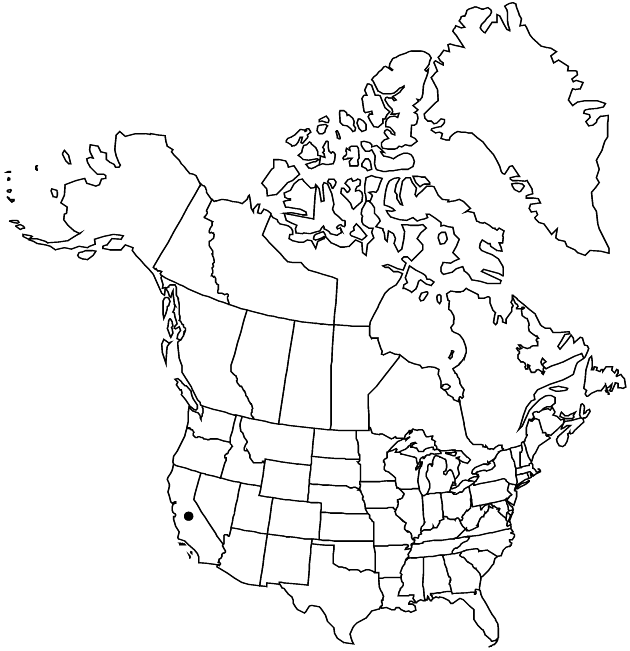Difference between revisions of "Lessingia leptoclada"
Proc. Amer. Acad. Arts 7: 351. 1868.
Common names: Sierra lessingia
FNA>Volume Importer |
FNA>Volume Importer |
||
| Line 48: | Line 48: | ||
|publication year=1868 | |publication year=1868 | ||
|special status= | |special status= | ||
| − | |source xml=https://jpend@bitbucket.org/aafc-mbb/fna-data-curation.git/src/ | + | |source xml=https://jpend@bitbucket.org/aafc-mbb/fna-data-curation.git/src/f6b125a955440c0872999024f038d74684f65921/coarse_grained_fna_xml/V19-20-21/V20_1059.xml |
|tribe=Asteraceae tribe Astereae | |tribe=Asteraceae tribe Astereae | ||
|genus=Lessingia | |genus=Lessingia | ||
Revision as of 18:39, 24 September 2019
Plants 5–90 cm. Stems erect, tan, glabrous or villous to tomentose. Leaves: basal withering by flowering; cauline margins entire, faces gland-dotted (in pits, sometimes obscured by tomentum), abaxial glabrous or villous to tomentose. Heads borne singly or in corymbiform arrays, usually at ends of branchlets. Involucres obconic, 5–10 mm. Phyllaries green or purple-tipped, faces persistently tomentose, gland-dotted or not; inner scarious. Disc florets 6–25; corollas lavender (color more intense in tubes); style-branch appendages truncate-penicillate or lanceolate, 0.3–0.6 mm. Pappi tan, longer than cypselae. 2n = 10.
Phenology: Flowering Jul–Oct.
Habitat: Open areas, roadsides, woodlands, conifer forests, sometimes granitic soils
Elevation: 200–1800 m
Discussion
Lessingia leptoclada grows in the Sierra Nevada.
Selected References
None.
Lower Taxa
None.
